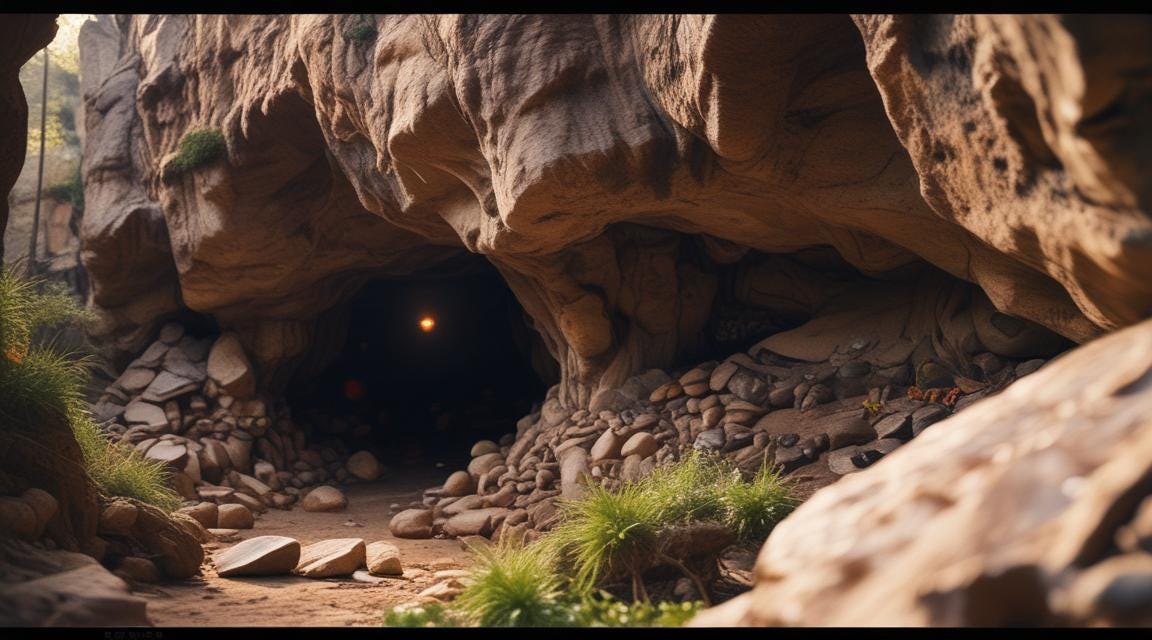Elijah’s epic confrontation with the prophets of Baal in 1 Kings 18 fires the imagination and might make us think there’s not much of significance in the rest of the chapter. But the first sixteen verses (prelude to the battle) introduce us to a man named Obadiah who “feared the Lord greatly.” There are about a dozen men in the Old Testament by that name, including one of the Minor Prophets. We’ll assume this Obadiah in 1 Kings 18:1-16 is, to us, an obscure yet courageous man who finds himself in a delicate and potentially deadly situation.
Reigning without rain
After many days the word of the Lord came to Elijah, in the third year, saying, “Go, show yourself to Ahab, and I will send rain upon the earth.” So Elijah went to show himself to Ahab. Now the famine was severe in Samaria (1 Kings 18:1-2, ESV). Ahab married a pagan princess, built a temple for Baal in his capital city, and provoked the Lord to anger. Elijah is the man whose prayer started the now years-long drought. Ahab will not be happy to see him, but Elijah goes because God said to go. That’s how faith works.
In a cave because they wouldn’t cave in
And Ahab called Obadiah, who was over the household. (Now Obadiah feared the Lord greatly, and when Jezebel cut off the prophets of the Lord, Obadiah took a hundred prophets and hid them by fifties in a cave and fed them with bread and water.) (1 Kings 18:3-4). These are dicey times to be a prophet, under death sentence from the queen. Obadiah’s position is significant. He works for the king, but is secretly defying the evil king’s wicked wife by trying to keep God’s prophets alive in hiding. Obadiah’s is a great example of faith in action, and he reminds that God can use a righteous man in an unrighteous regime to get good done. He risks his neck for the Lord’s people. Would you (cf. Rom. 16:3-4)?
Concern for horses, not holiness
And Ahab said to Obadiah, “Go through the land to all the springs of water and to all the valleys. Perhaps we may find grass and save the horses and mules alive, and not lose some of the animals.” So they divided the land between them to pass through it. Ahab went in one direction by himself, and Obadiah went in another direction by himself (1 Kings 18:5-6). Ahab trusts Obadiah (God’s people are the most dependable). The king’s interest in horses is probably military, but his interest in holiness is nil. The king is trying to keep animals alive, when he wouldn’t even have this problem drought had he been righteous in the first place. He is his people’s enemy (for sinners do not see things as they are).
Wary man and wanted man
And as Obadiah was on the way, behold, Elijah met him. And Obadiah recognized him and fell on his face and said, “Is it you, my lord Elijah?” And he answered him, “It is I. Go, tell your lord, ‘Behold, Elijah is here.’” And he said, “How have I sinned, that you would give your servant into the hand of Ahab, to kill me? As the Lord your God lives, there is no nation or kingdom where my lord has not sent to seek you. And when they would say, ‘He is not here,’ he would take an oath of the kingdom or nation, that they had not found you. And now you say, ‘Go, tell your lord, “Behold, Elijah is here.”’ And as soon as I have gone from you, the Spirit of the Lord will carry you I know not where. And so, when I come and tell Ahab and he cannot find you, he will kill me, although I your servant have feared the Lord from my youth. Has it not been told my lord what I did when Jezebel killed the prophets of the Lord, how I hid a hundred men of the Lord’s prophets by fifties in a cave and fed them with bread and water? And now you say, ‘Go, tell your lord, “Behold, Elijah is here”’; and he will kill me” (1 Kings 18:7-14). So we learn there was an international manhunt on for Elijah, and Ahab was not playing games when questioning other countries on the prophet’s whereabouts. Interestingly, Obadiah assumes God will protect Elijah, but not that God will protect Obadiah. He fears for his life. After all, sometimes the danger to God’s people is real. Ask the prophets hiding in the cave. Yet, the Lord counsels us not to live in fear (Matt. 10:28).
Not a trick, but still a test
And Elijah said, “As the Lord of hosts lives, before whom I stand, I will surely show myself to him today.” So Obadiah went to meet Ahab, and told him. And Ahab went to meet Elijah (1 Kings 18:15-16). Obadiah might have insisted that he would not go back to Ahab unless Elijah went with him. But, he didn’t. Elijah could have alleviated fears by volunteering to go with Obadiah. But, he didn’t. Instead, it was left to Obadiah to trust what Elijah said—a test, but not a trick. And, as Obadiah leaves to find Ahab, he vanishes from the record as quickly as he had appeared. We know neither his backstory nor what happened after. He fades into the obscurity whence he came. He played the hand he was dealt, though it embraced difficulty and danger. He stepped onto history’s stage, helped in a small way to move God’s salvation story along, then made exit. Come to think of it, isn’t that the role of us all?





Great reminder of a really good sermon! Love your lessons!
I like this story. There’s a brief mention of “Joanna, wife of Cuza,” a woman married to the man over Herod’s household. Interesting how God uses “supporting players” to carry out His will.